Carin, 2012: Every working mother with two small children is regularly tired. My beautiful daughter is three years old and my handsome son is nine. I work full time and lead a happy, busy life. But I decide I should exercise more. I feel a bit better for a while, until in October 2011 I get a pain in my back and legs. A long walk becomes more and more difficult. In sports, the 60-year-old fellow students appear to be more flexible than me. With the approval of the doctor I have an MRI done. Turns out I have metastases in the bone, spread over the entire skeleton. My lower back, hip and shoulder are especially severely affected, but in fact there are hardly any places where there is no cancer. The disease process is at an advanced stage and unfortunately can no longer be controlled. Panic. The oncologist understands my questions (”how long do I have left”, ”what can I expect”), but explains that there is no unequivocal answer to them. It is important to quickly discover where the metastases come from and what the primary tumor is. Only then can anything be said about a possible life-prolonging treatment.
Francine, 2021: Nine years ago, in four months time, I would lose both my father and my sister Carin to the form of cancer we call CUP. My mother died a year later of a broken heart. It was like a Greek tragedy, it was a bomb on a normal and happy family. In 2014, my last remaining relative, my sister Anne-Marie, would contract a four-year illness with breast cancer.
But this is only half of my story about Cup.
The second half starts in 2019, when researcher Caroline Loef reports that she has almost finished her broad study on CUP. She introduces me to Warnyta Minnaard who, like me, is raising awareness about CUP. Our foundations merge into Mission Tumor Unknown: Missie Tumor Onbekend.
Every day I think of my sister Carin, mother of two young children and taken from us when she was only 41 years of age. She herself bravely started the first patient-information on a Dutch website for the many patients who are diagnosed with CUP every year. Who spend their last days in great uncertainty but without a form of case management.
These days people work hard to improve this situation, which remained virtually unchanged in the Netherlands until 2020. Hard work is being done not just by Warnyta, Caroline, Anne-Marie and myself. There are now two specialist CUP- teams in Amsterdam and Rotterdam. There is better research to find the primary source of this form of cancer, but there is need for improvement, as the number of CUP patients in the Netherlands is still increasing.
Raising awareness is of the utmost importance.
Francine van der Heijden, 19-08-2021


